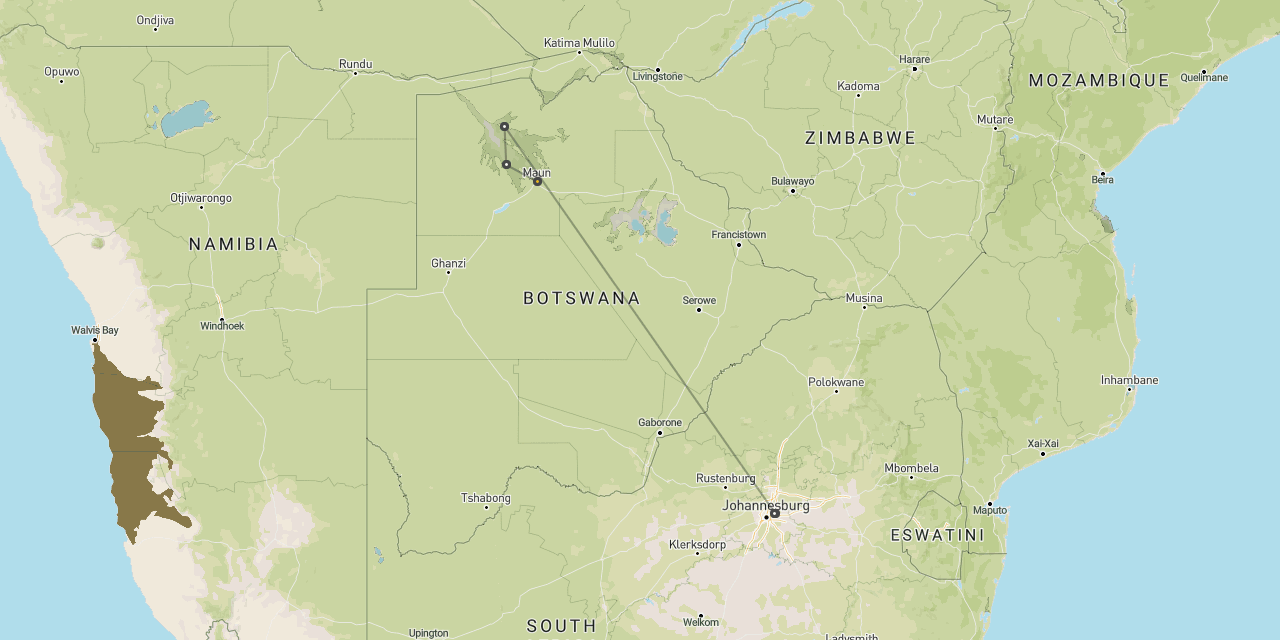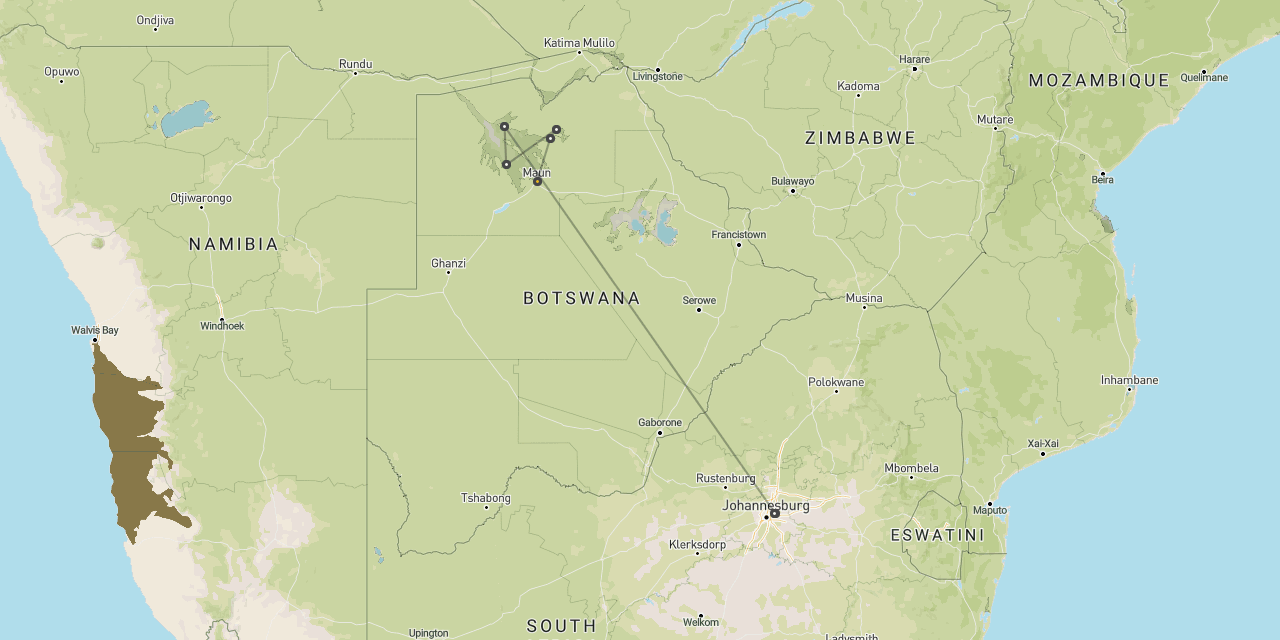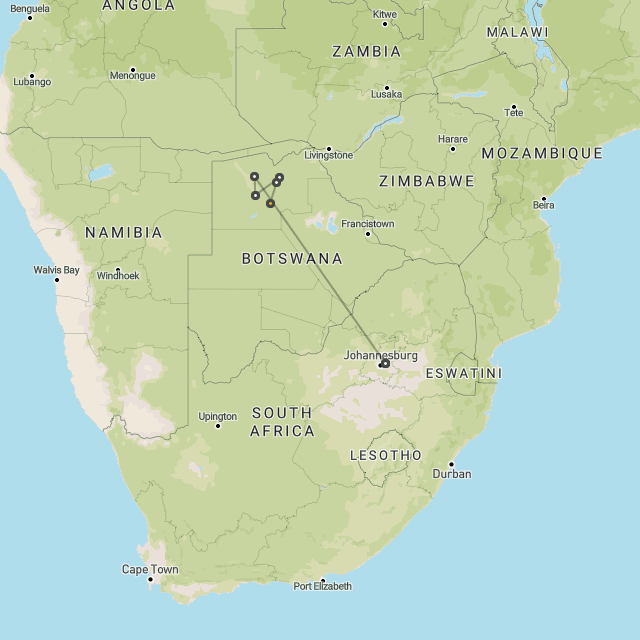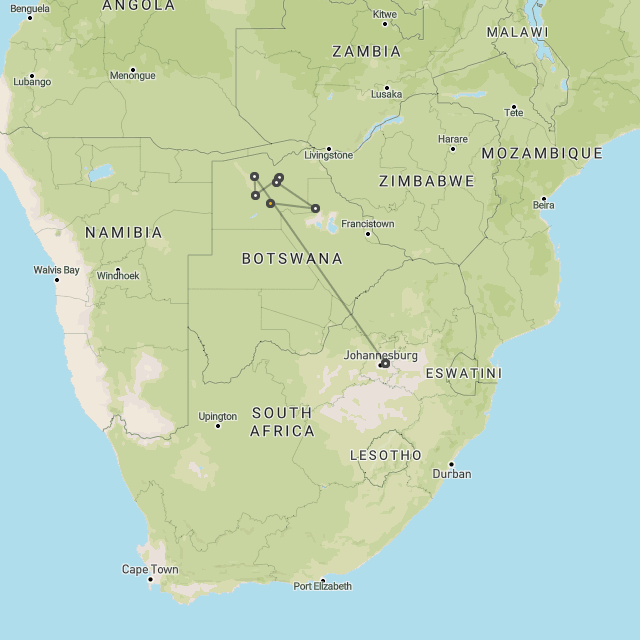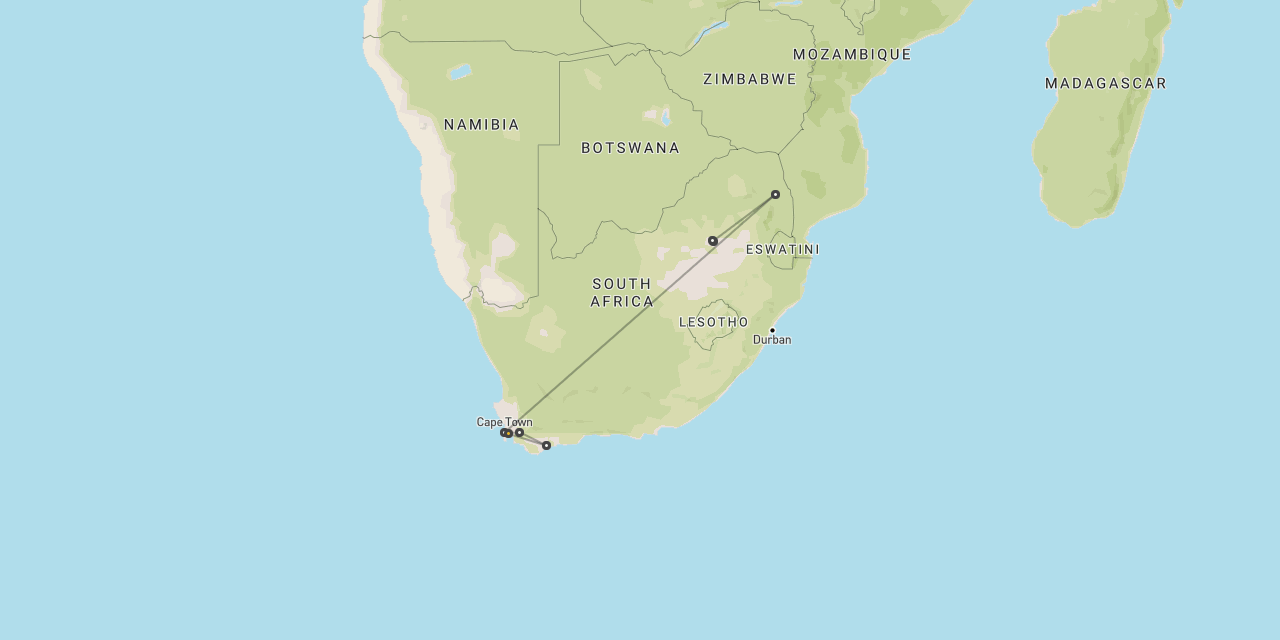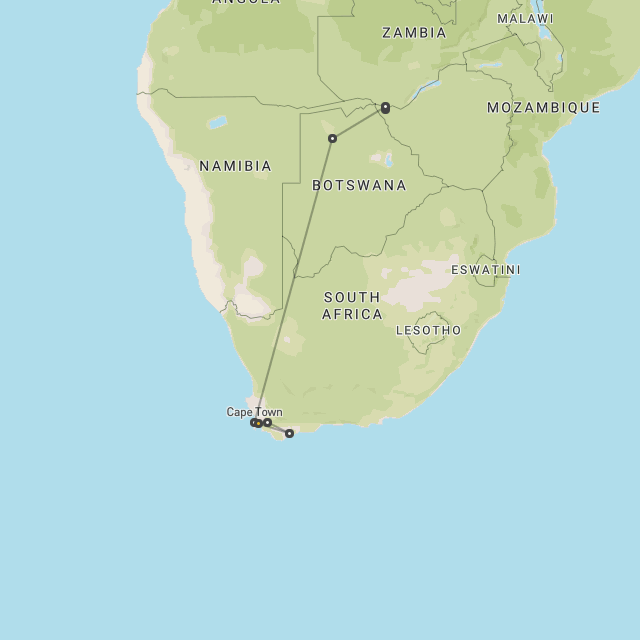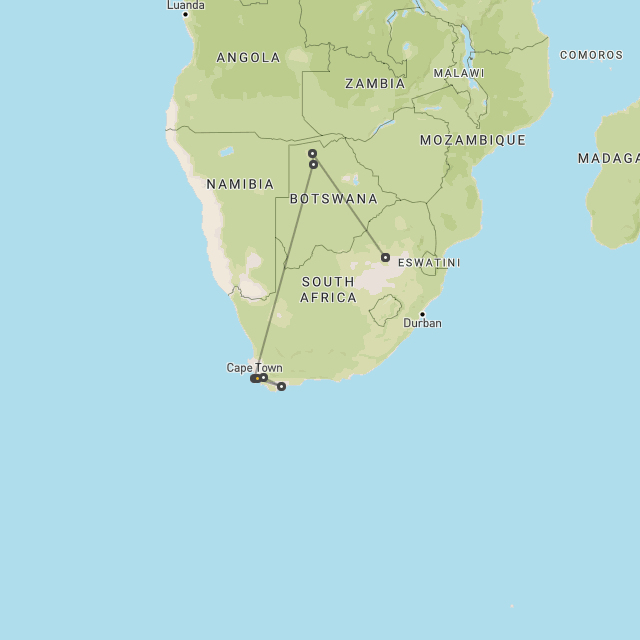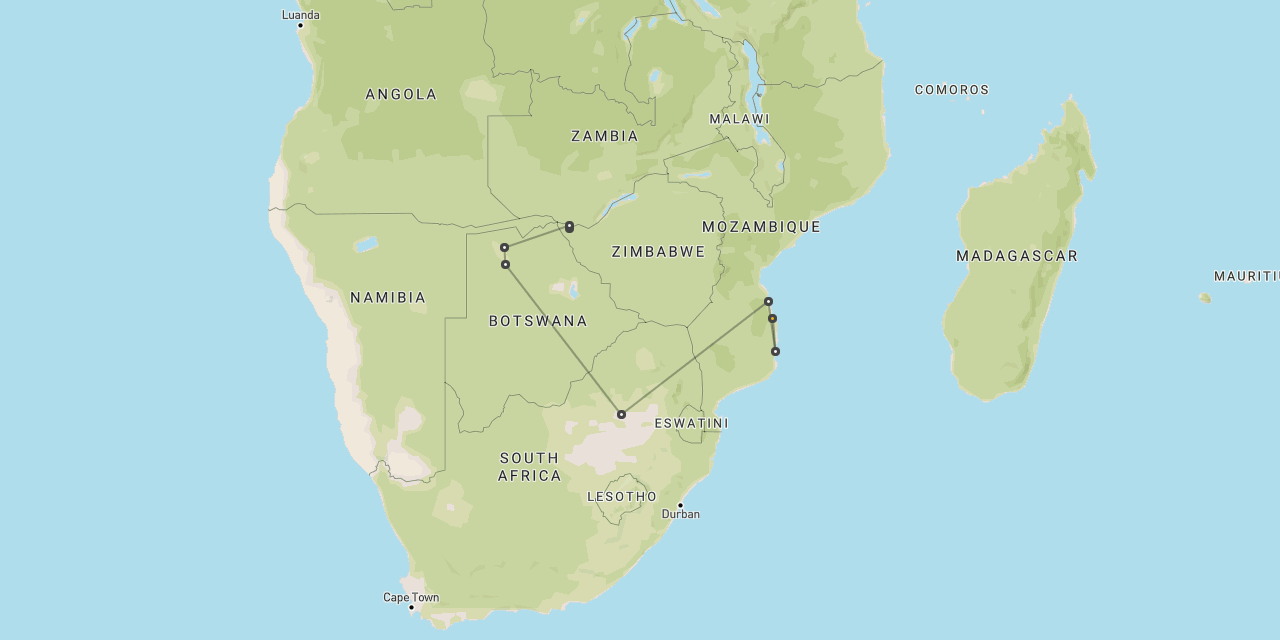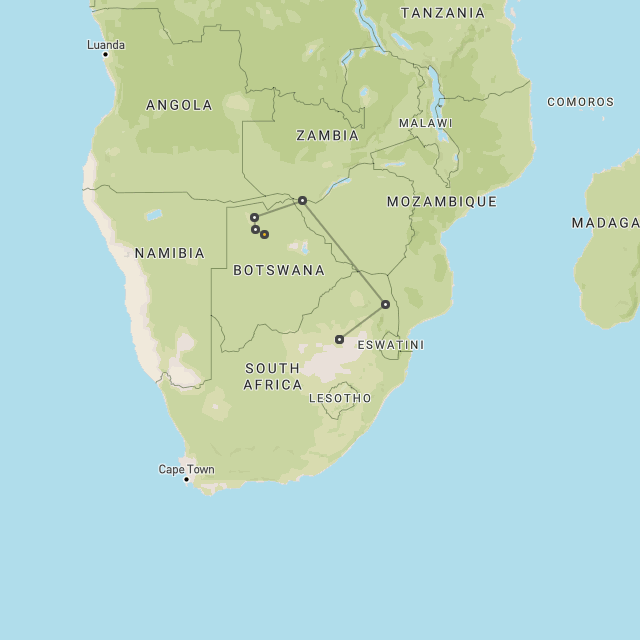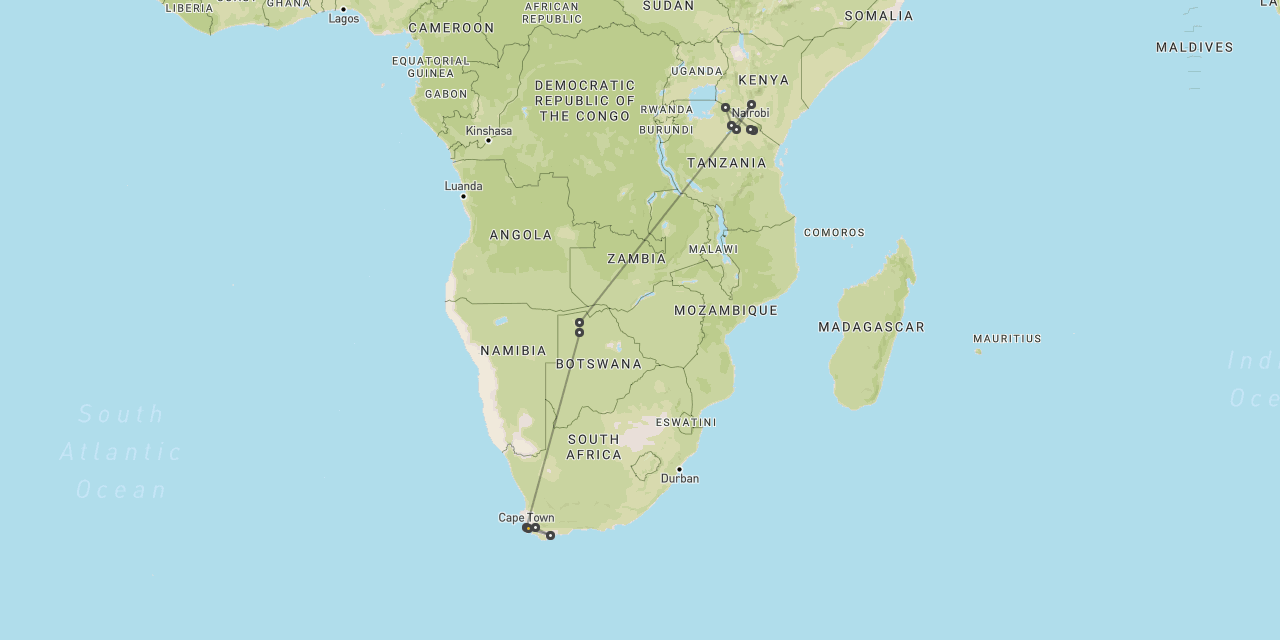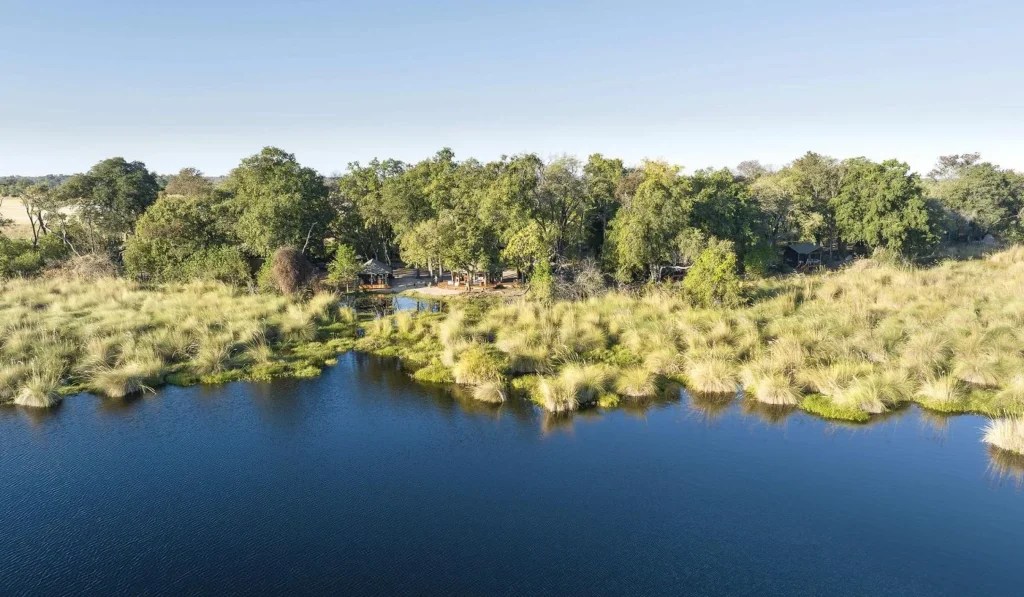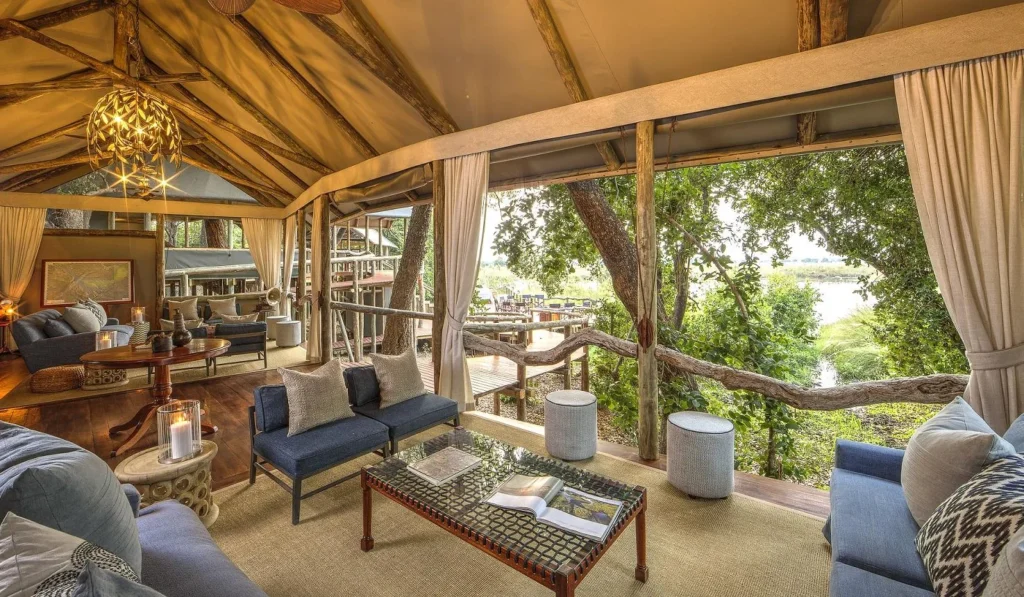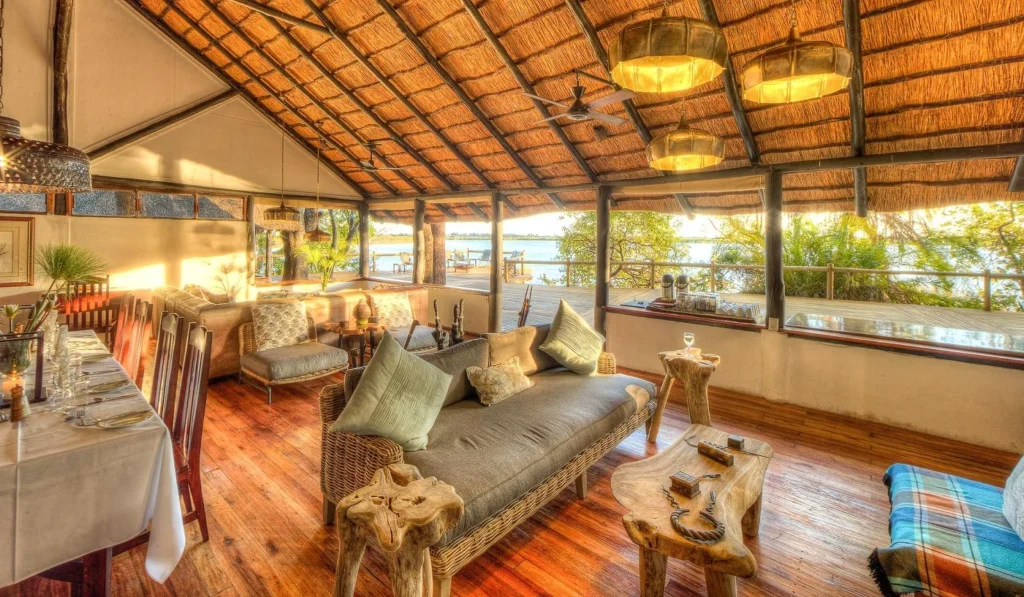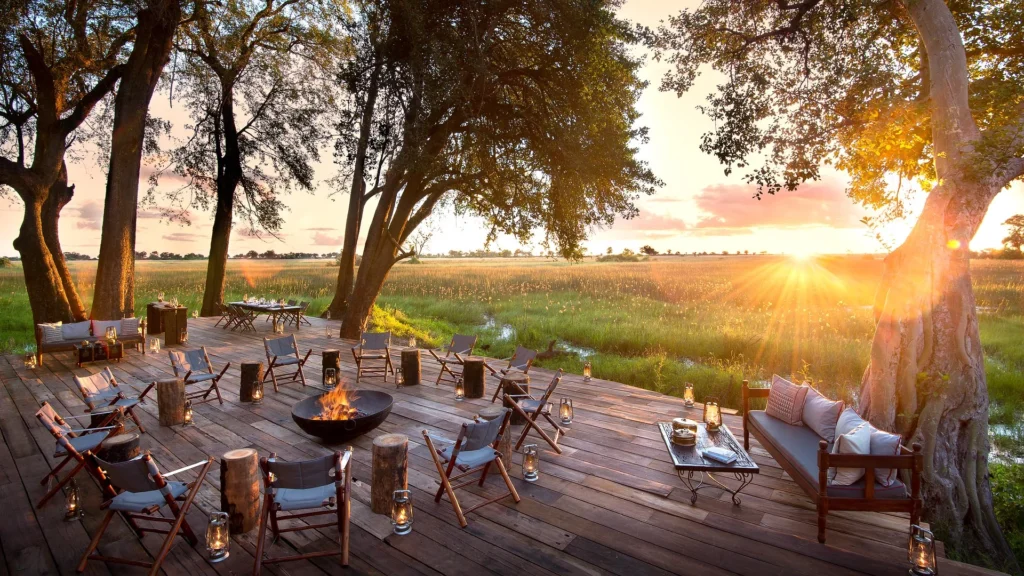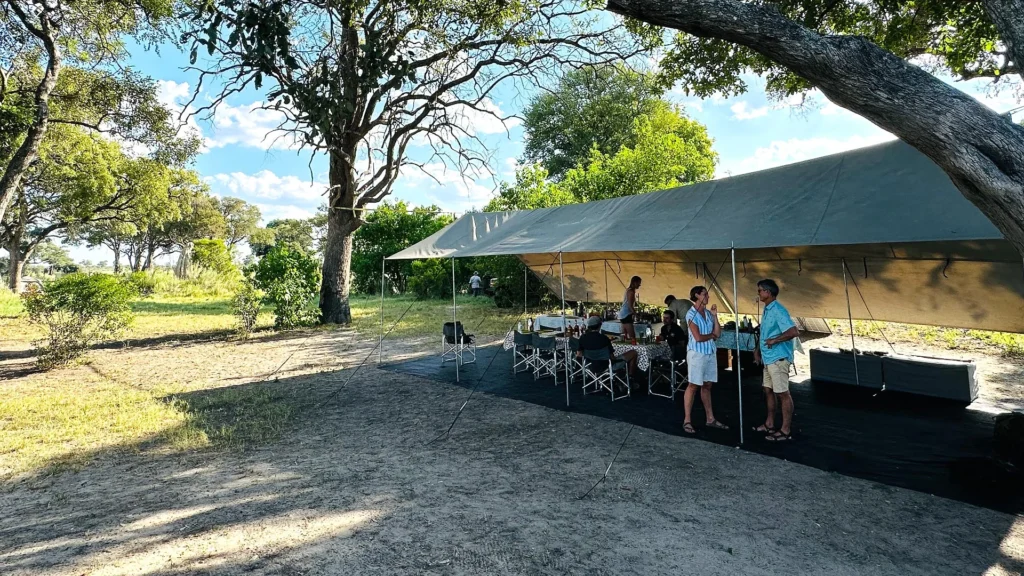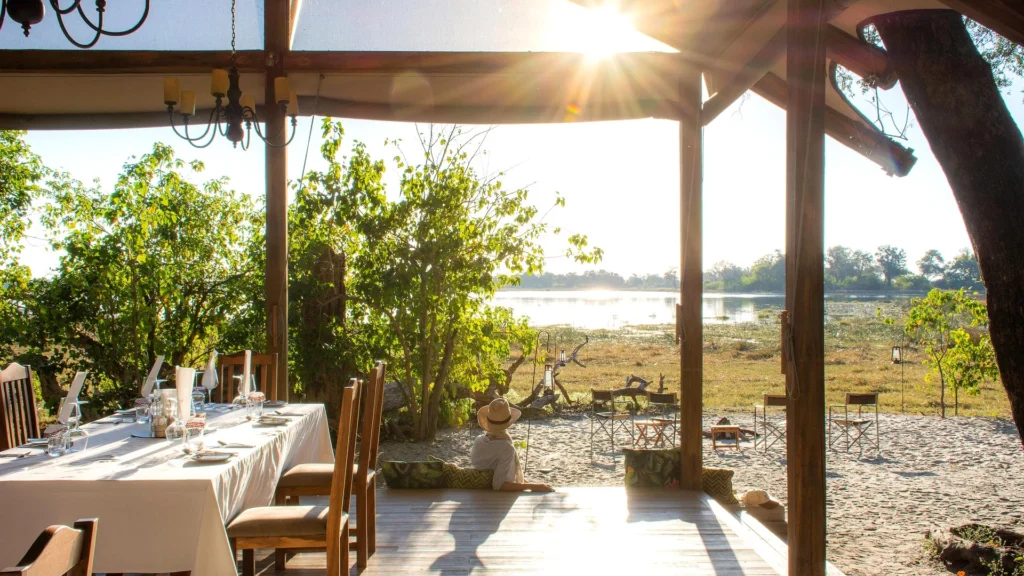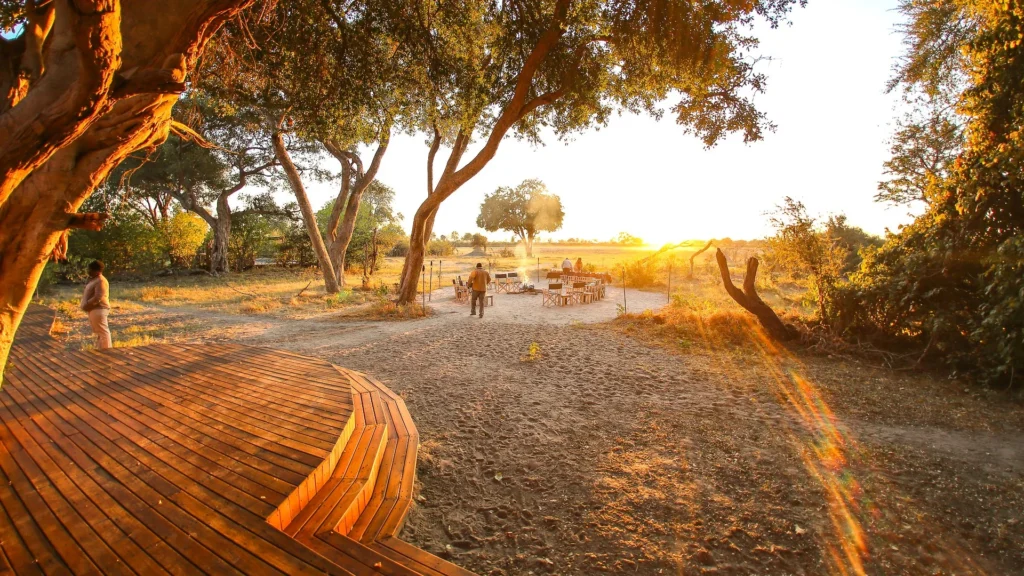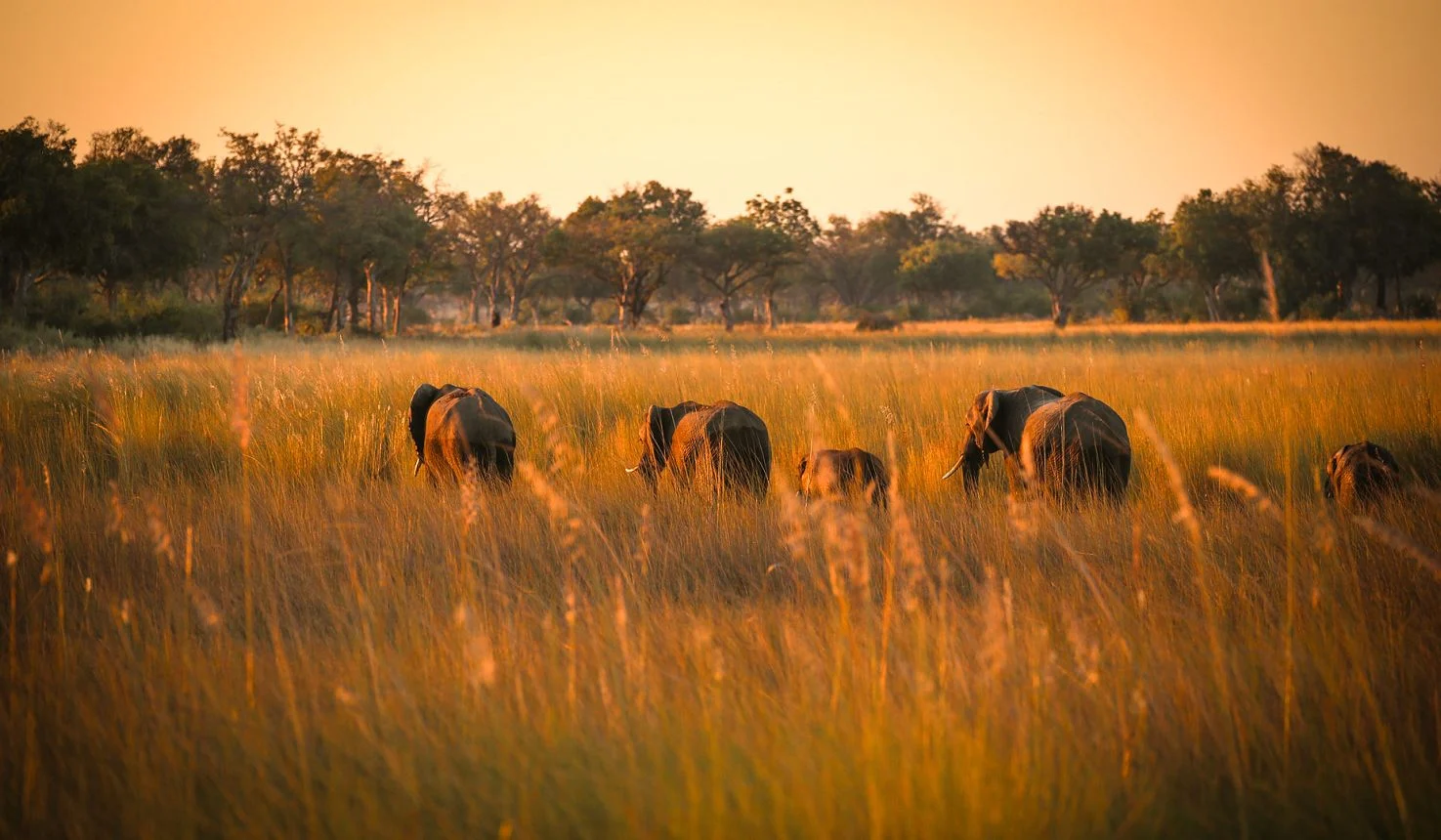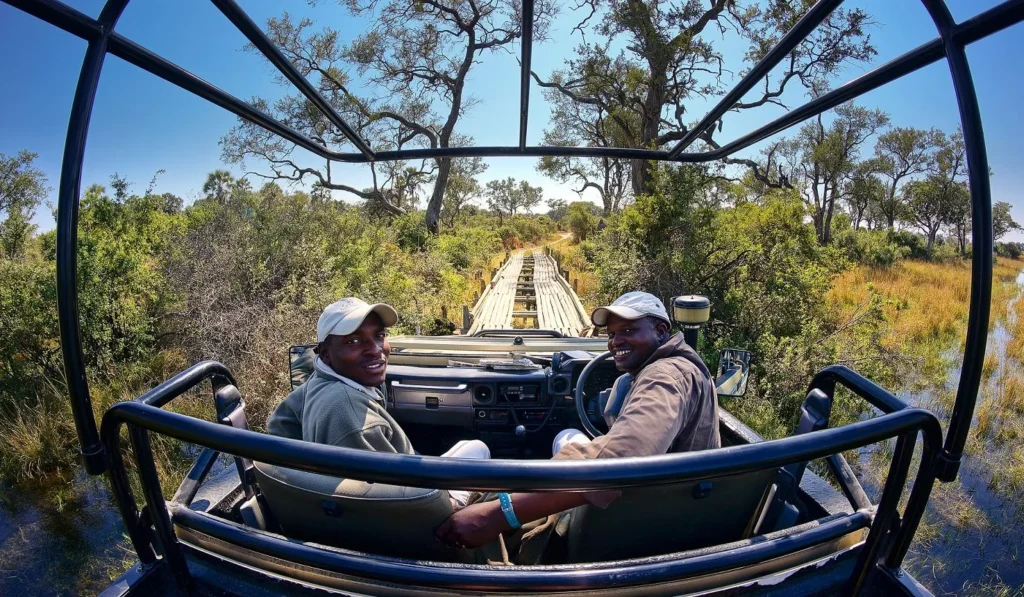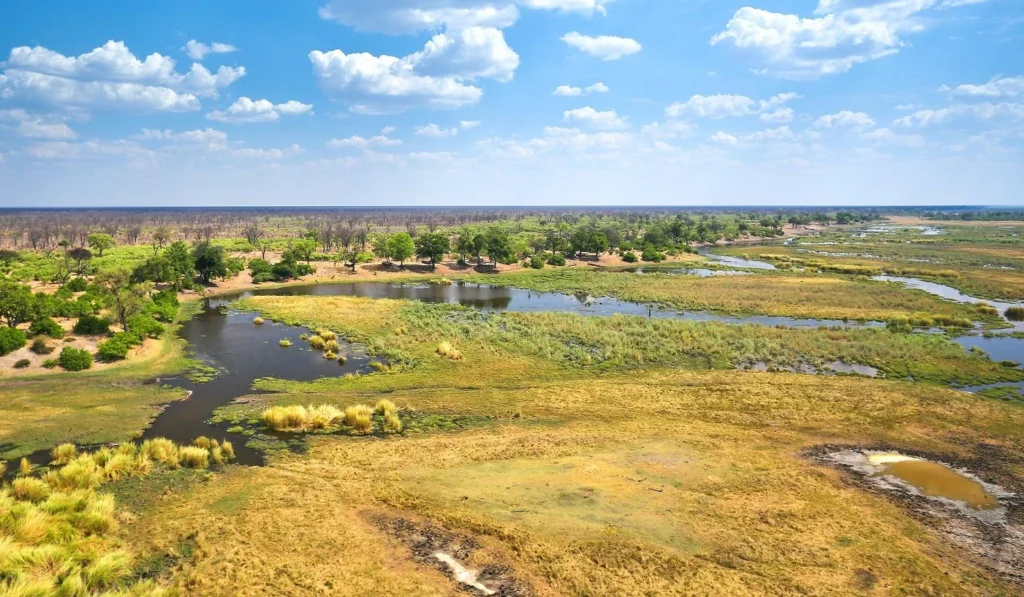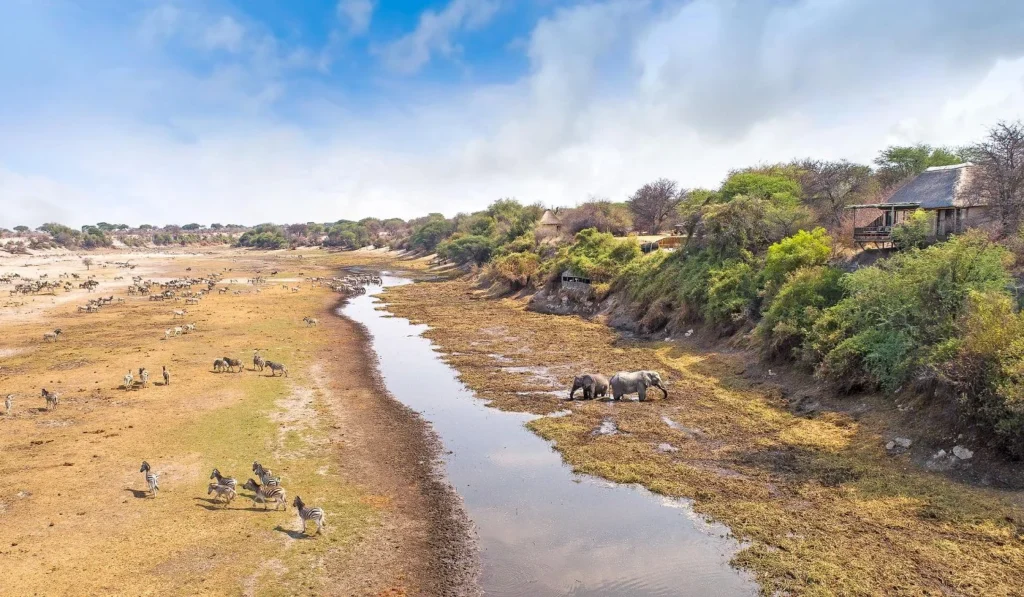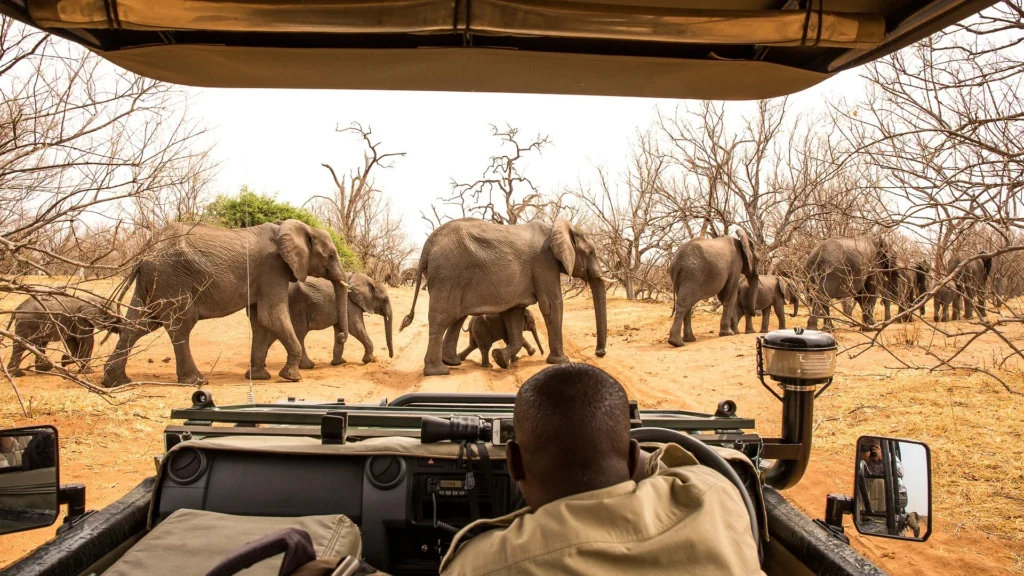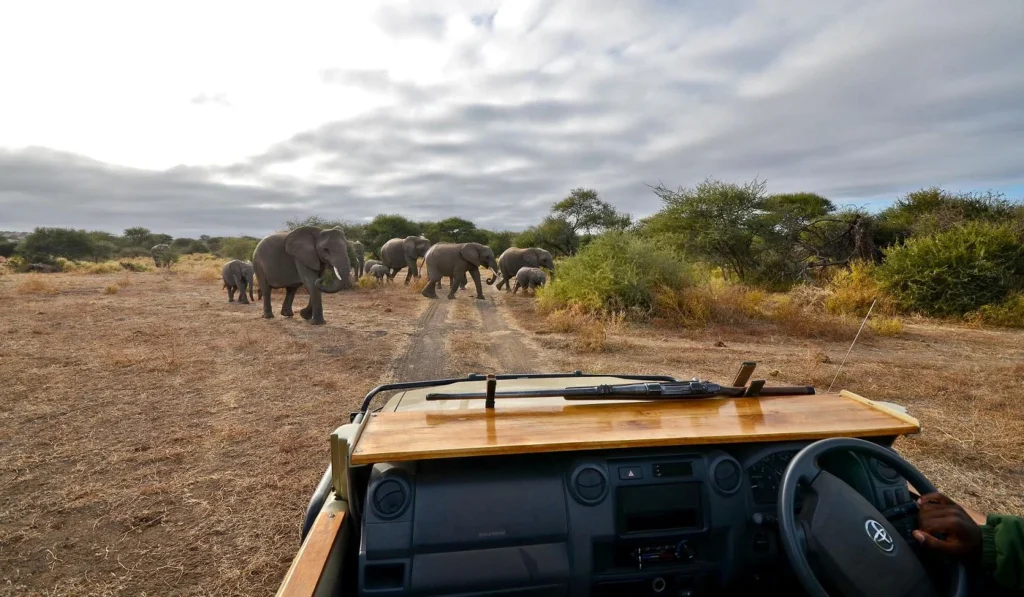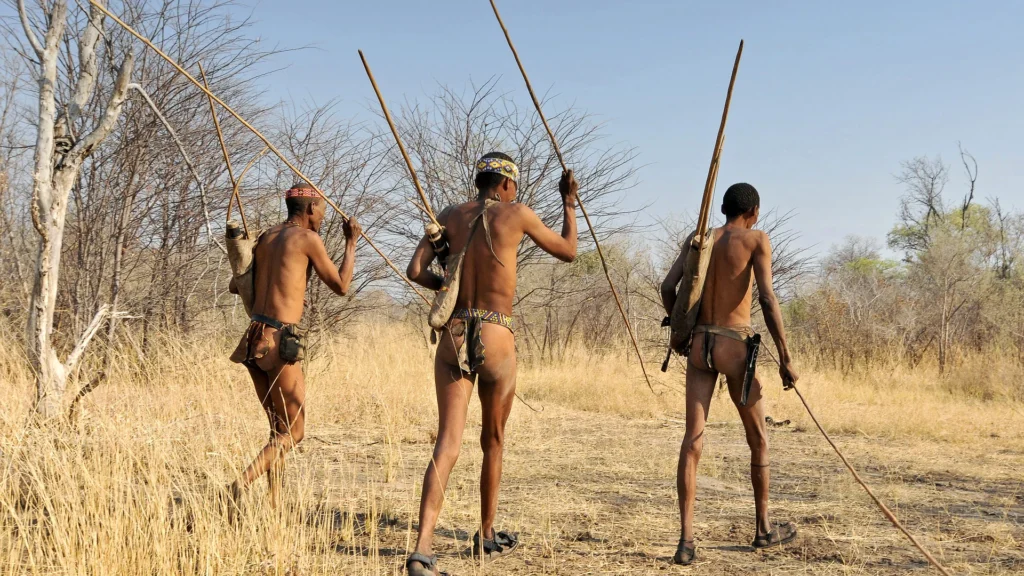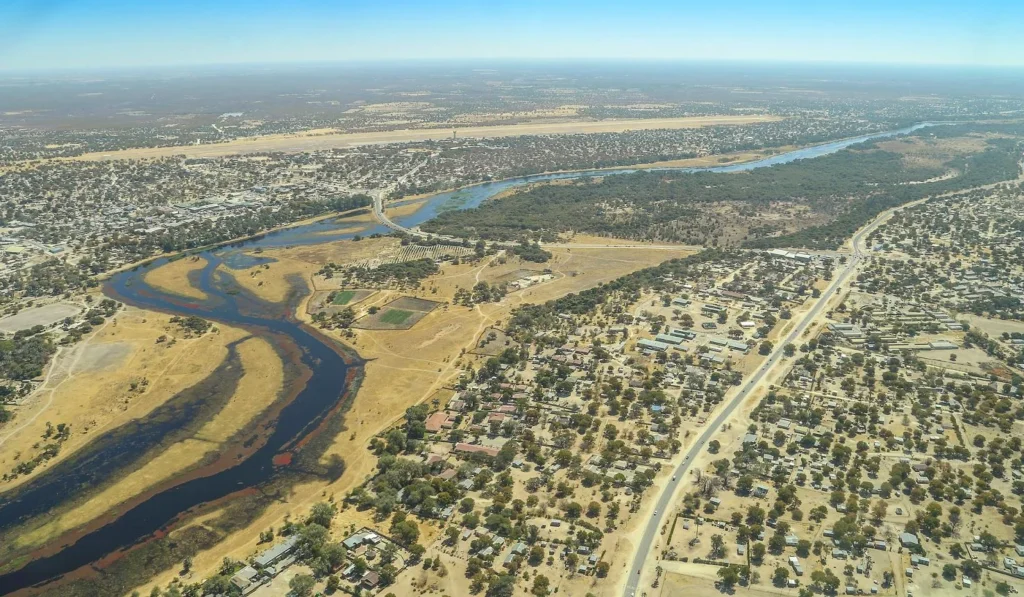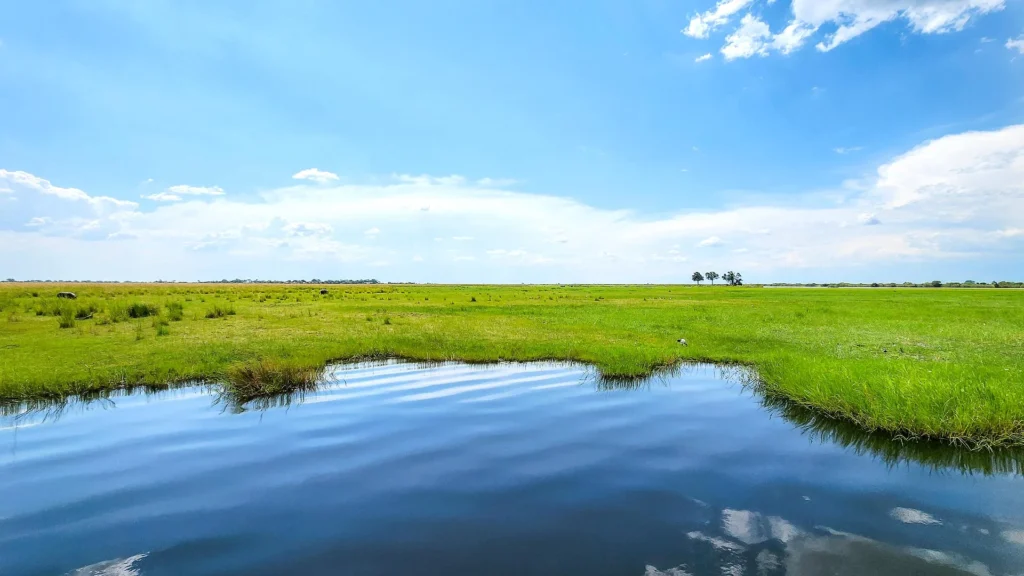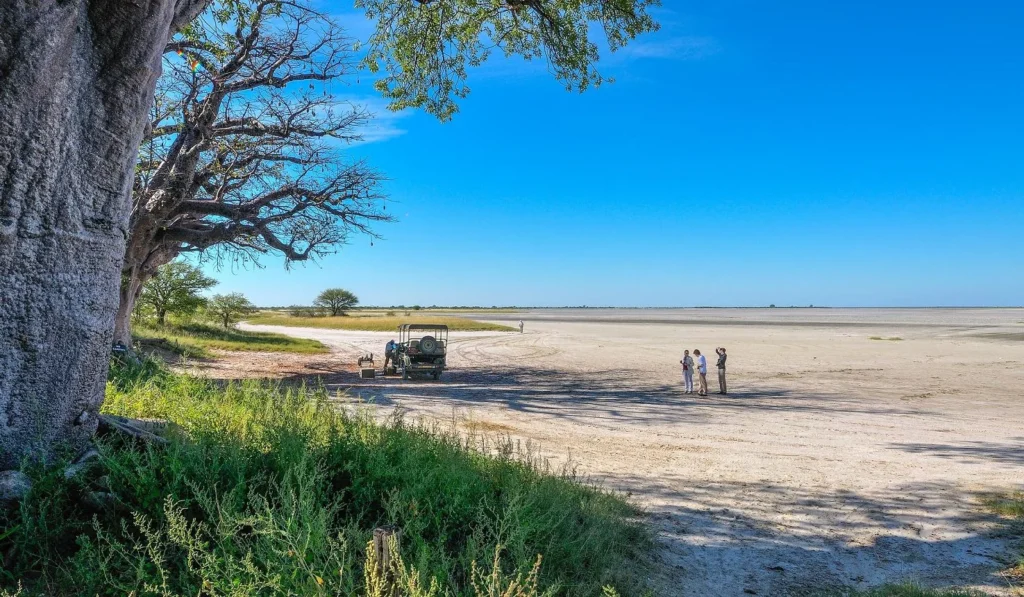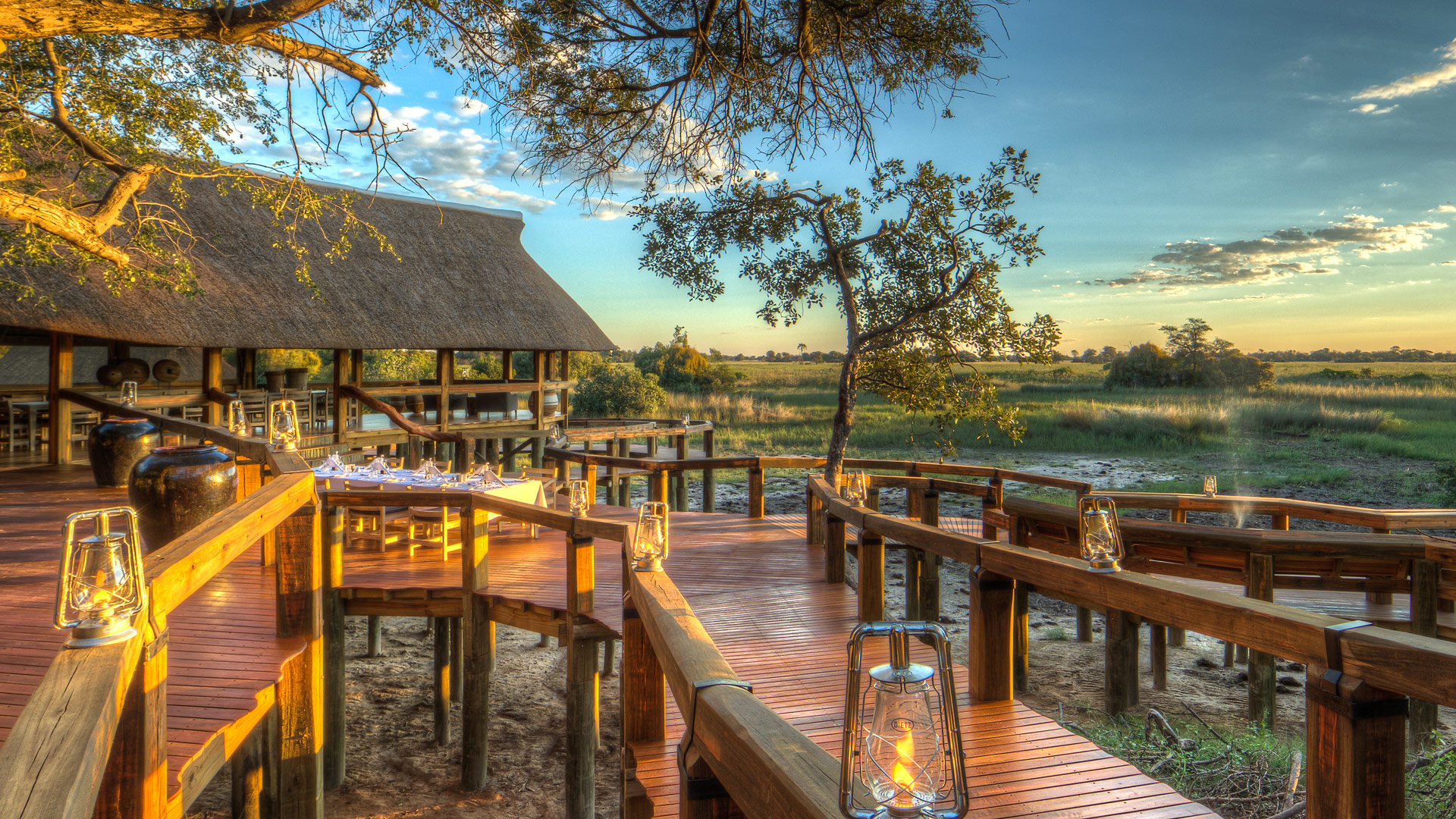
Camp Okavango
Camp Okavango
is an historic outpost
in the Okavango Delta
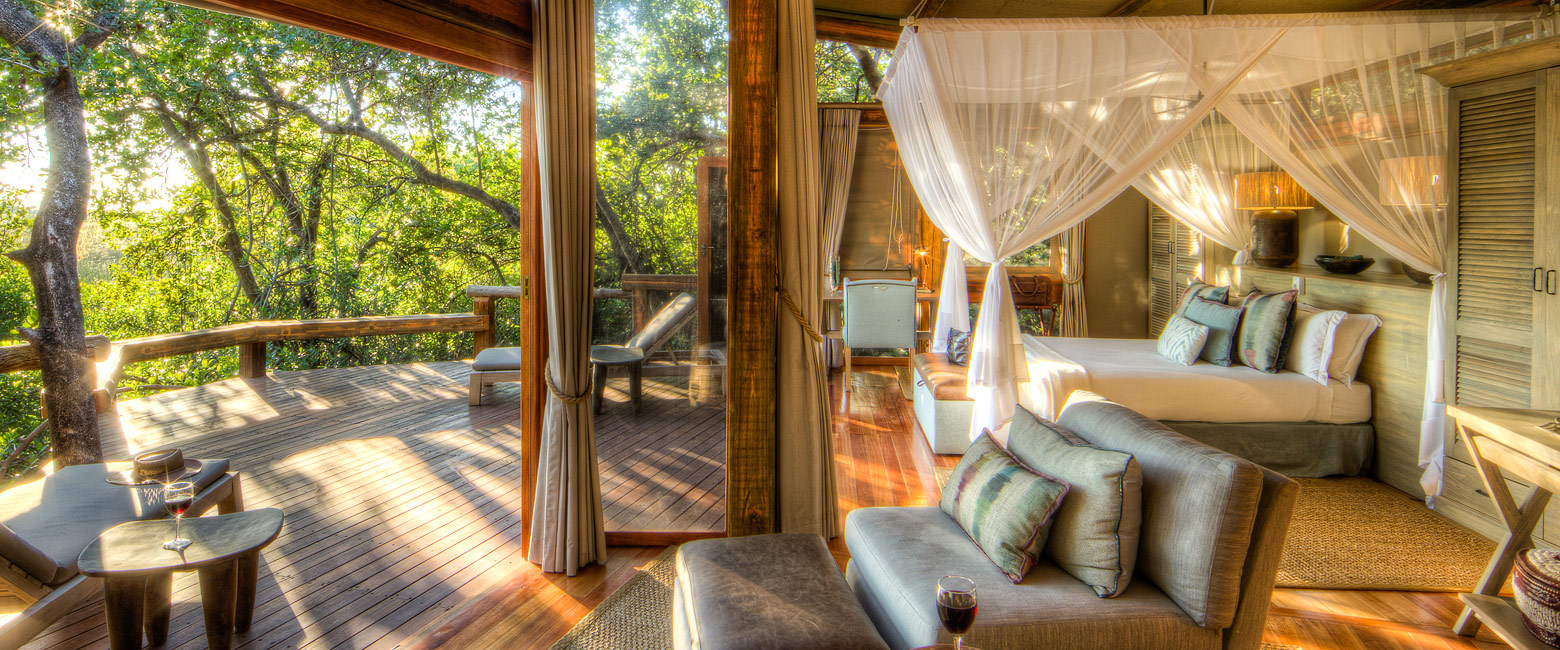
a very strong focus on wet safari activities
Camp Okavango is located in the Shinde Concession in the Okavango Delta area of northern Botswana.
This is a mid-range camp, set in a stand of beautiful mangosteen trees on the remote Nxaraga Island to the north of the concession.
The camp was completely rebuilt in 2017, replacing the historic but very dated old lodge. It is now set up on decks above the natural landscape, the manicured gardens having thankfully been removed.
One aspect we always appreciate is when wildlife comes into camp. Here the main event seems to be the local baboons, who can actually be quite a nuisance. Whatever you do, don’t leave your tent open or they may well come in and trash the place. The vervet monkeys tend to be less confident. Otherwise this is not a camp in which we have personally seen a lot of wildlife, although we did hear of one guest seeing a leopard walk right past the main building early one morning.
Rooms
Guest accommodation at Camp Okavango is in a total of twelve substantial suite rooms, with large open-plan bathrooms and private decks.
Activities
Camp Okavango provides the following limited range of guided activities …
- Mokoro canoe safari
- Motorboat safari
- Walking safari
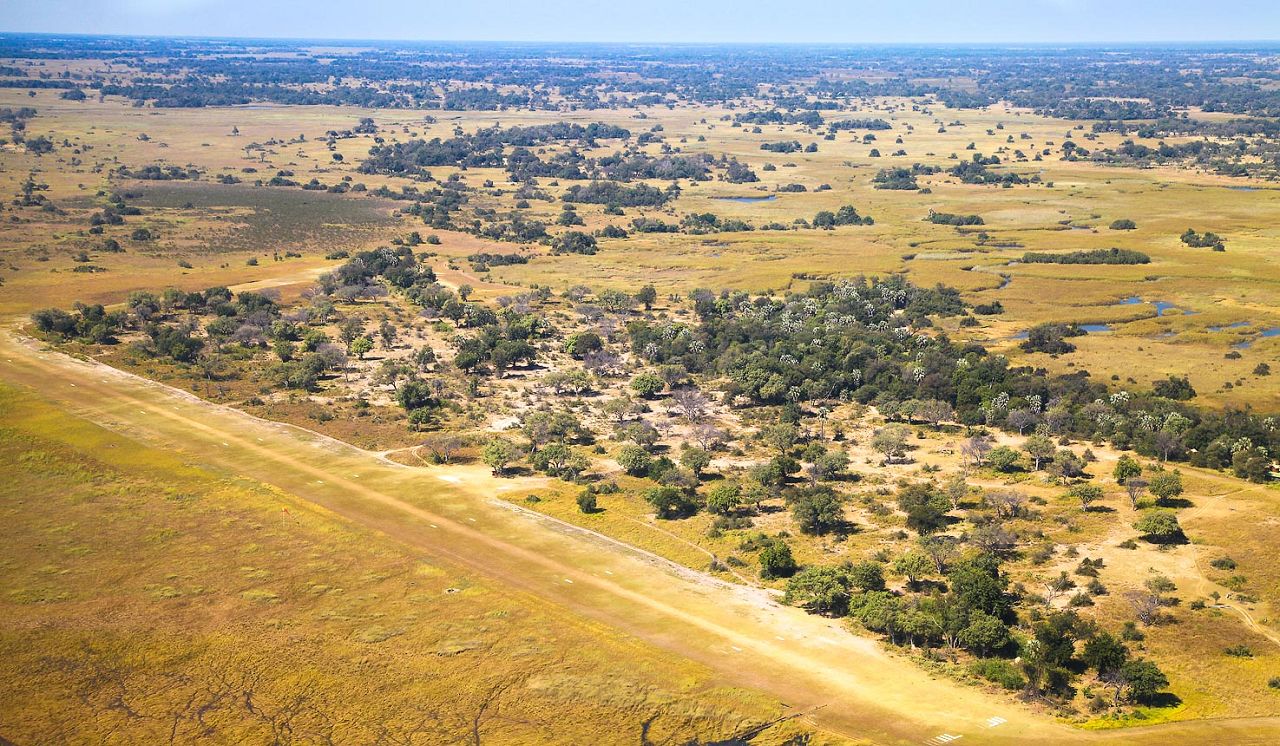
Gallery
Map
When it comes to trip shapes and durations in Botswana, most visitors combine 2, 3 or 4 lodges by light aircraft over 6-12 nights, one or two of which will usually be here in Okavango Delta, combined with the Linyanti Waterfront and/or Makgadikgadi areas.
These trips are often done in combination with further nights at the Victoria Falls and/or down in the Cape.
The usual stay duration here on the Shindi Concession is 3-4 nights.
Seasonality
The May-Jun flood season is a period of transition from the hot wet summer to the cool dry winter and is a great time to visit, with lots of baby animals around and the magical arrival of the floodwaters.
Temperatures can drop towards freezing during the night, but this has little adverse effect on safari, the days are gorgeous and there are virtually no insects around.
The majority of camps are also significantly discounted during this time.
On the Okavango Shinde Concession the various camps have very different activities and so are affected differently as the seasons change.
The two northerly properties, Camp Okavango and Xugana Island Lodge, are both very much focused on water-based activities, with motorboat safari and mokoro canoe safari both usually being available throughout this season. Some limited walking safari is also possible on the various islands.
The two southerly properties, Shinde Camp and Footsteps Camp, both have vehicles and therefore offer a wider range of activities. The presence of permanent deepwater channels means that motorboat safari is available year round. During this season mokoro safari usually only becomes possible once the floodwaters have started to arrive. Vehicle safari tends to be reasonable rather than strong.
The Jul-Sep dry season is the classic time to visit the Okavango Delta and is considered the best time for wildlife viewing, as many animals are drawn to water from the surrounding area.
During Jul-Aug the cooler temperatures at night can continue but it is great for safari.
This is very much the high season in terms of prices and visitor numbers.
The two northerly properties, Camp Okavango and Xugana Island Lodge, are both very much focused on water-based activities, with motorboat safari and mokoro canoe safari both usually being available throughout this season. Some limited walking safari is also possible on the various islands.
The two southerly properties, Shinde Camp and Footsteps Camp, both have vehicles and therefore offer a wider range of activities. The presence of permanent deepwater channels means that motorboat safari is available year round. During this season mokoro safari is usually strong, but reduces through August as the floodwaters recede. At the same time the vehicle safari tends to improve, with more dry land available and animals increasingly clustering on the southern plains.
The Oct-Dec hot season represents the transition period between the peak of the dry season and the start of the rains. Temperatures can become uncomfortably high in advance of the rains, particularly in Oct-Nov.
Boating activities may be unavailable except for those camps with access to permanent deepwater channels.
If significant rainfall does arrive, it usually comes in short sharp showers and generally has little negative effect on safari conditions. The rains may cause some animals to disperse but sightings remain strong.
The majority of camps are significantly discounted during this period.
The two northerly properties, Camp Okavango and Xugana Island Lodge, are focused on water-based activities, with motorboat safari and mokoro canoe safari both usually being available throughout this season. Some limited walking safari is also possible on the various islands.
The two southerly properties, Shinde Camp and Footsteps Camp, have vehicles and therefore offer a wider range of activities. The presence of permanent deepwater channels means that motorboat safari is available year round. During this season mokoro safari is usually no longer possible. Vehicle safari tends to be at its best, with more dry land available and animals increasingly clustering around the few remaining waterholes.
The period Jan-Apr is the main green season in the Okavango Delta, when the area experiences the majority of its rainfall, with Dec-Feb period threatening the greatest chance of rain.
The temperatures and humidities are usually higher than usual but overall, conditions are pleasant enough.
The majority of camps are significantly discounted throughout this season so it is a very smart time to travel, particularly towards April.
The two northerly properties, Camp Okavango and Xugana Island Lodge, are focused on water-based activities, with motorboat safari and mokoro canoe safari both usually being available throughout this season. Some limited walking safari is also possible on the various islands.
The two southerly properties, Shinde Camp and Footsteps Camp, have vehicles and therefore offer a wider range of activities. The presence of permanent deepwater channels means that motorboat safari is available year round. During this season mokoro safari is usually no longer possible. Vehicle safari also tends to be slightly weaker, since the wildlife is more dispersed, but there remains a good amount of resident wildlife to be seen.
Getting there
The camp can only be accessed by light aircraft into the adjacent Nxaraga Airstrip, which has daily flight connections with all other camps in Okavango, Linyanti, the main airport at Maun (for connections to Central Kalahari, Nxai, Makgadikgadi and Johannesburg) and north to Kasane (for connections to Livingstone and Victoria Falls).
It is also possible to arrive into the area by motorboat from the end of the Mopane Tongue. Penetrating the delta by boat can be fun and provide a heightened sense of adventure.
From the airstrip or jetty it is a short five minute walk into camp.
usually combined with at least one other camp in Botswana
let us know your thoughts about Botswana
and we will help you create the perfect safari
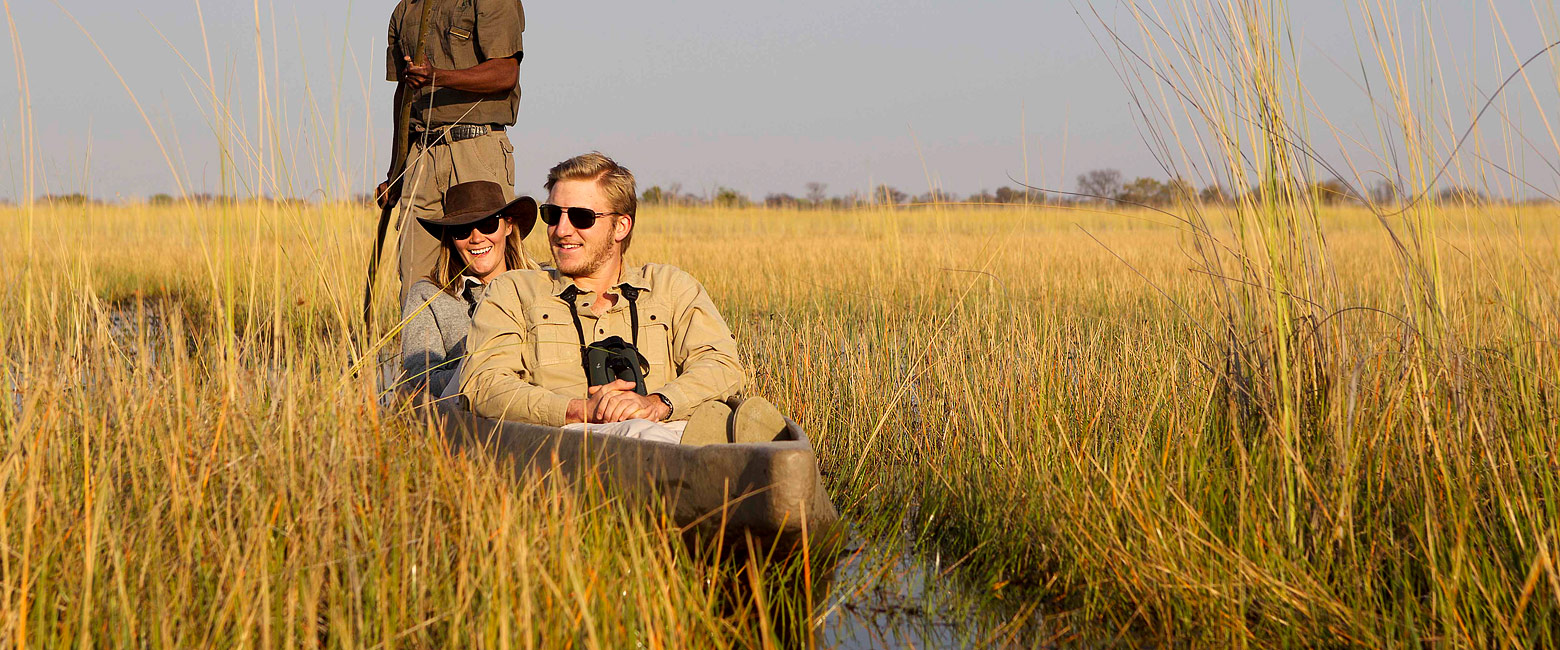
Extraordinary tailor-made adventures,
from earthy and edgy to easy and extravagant
From around USD 2500 per person, you set the ceiling
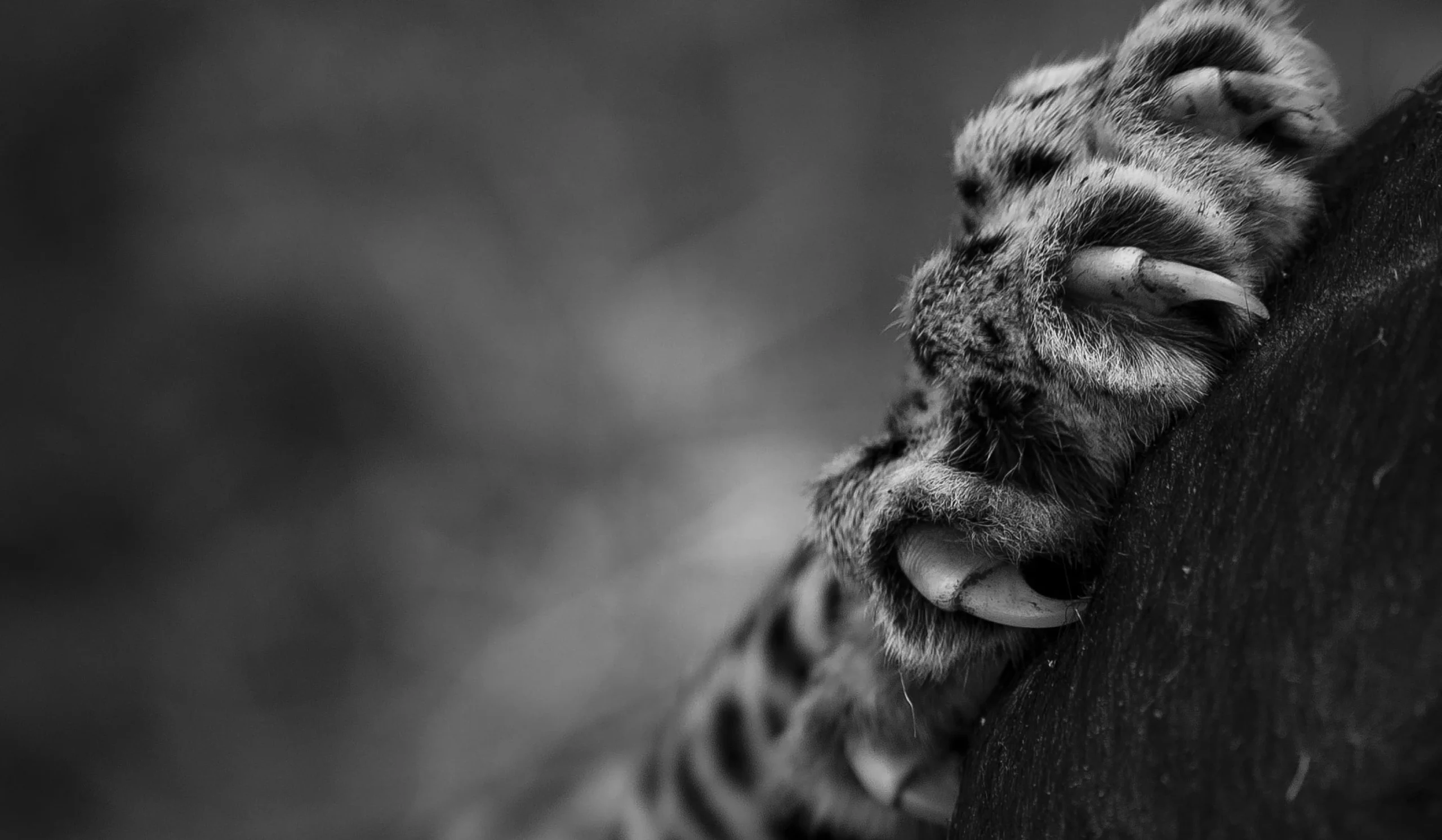
Get started on your trip
It’s never too soon to get in touch, we are here to help with every stage of your planning.
Sample Trips
Here are some of our popular trip shapes
Best Lodges
We regularly inspect and photograph all of the the best lodges, to ensure that we always recommend the most suitable options
Key Locations
Take a look around related locations. Click ‘View more’ to explore locations further afield.












